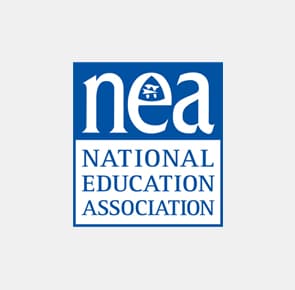What Do History Education Degrees Include?
If you have a passion for history and education, earning an online history teacher degree could be the perfect path for you. History educators bring the past to life, helping students connect historical events to the present through engaging storytelling and expert knowledge. A successful history teacher needs more than just a deep understanding of historical events—they must also develop skills in classroom management, lesson planning, and organization. Additionally, strong interpersonal skills are essential for building relationships with students, parents, and school staff.
You can explore the best online history teacher degree programs to find a flexible, accredited option that prepares you for a rewarding career in education.
While you can become a history teacher with a bachelor's degree, most teachers hold a master's or higher, so this should be your long-term goal. Many school systems hire teachers with a bachelor’s in history, requiring them to earn a master’s within five years. Fortunately, online bachelor’s and master’s degrees in history are available from schools across the country. While your online bachelor’s degree will require in-person student teaching, a master’s can often be completed fully online or through evening and weekend courses, which also offer continuing education credits. If you're interested in specializing, here are some areas of history you might consider.
- World History/Global History
- Modern World History
- American History/United States History
- Military History
- Environmental History
- European History
- Latin American History
- African History
- And Many More
Featured Online Programs
Degrees for History Teachers
Typical Education Requirements
As mentioned, you can start working as a teacher assistant with an associate degree, typically requiring around 60 credit hours, many of which are available online. A bachelor’s degree requires another 60 credit hours, totaling about 120 credits. Some programs may add 6-7 credits for specific education subjects, and some online programs offer accelerated paths, allowing students to complete an associate degree in 18 months or a bachelor’s in 3 years.
A master’s degree requires 30-40 credits, usually focused on a specific concentration, with evening, weekend, or online options available. If you pursue a PhD, it will take an additional four to six years.
Find Your Online History Education Program
Common Certifications for History Educators
Every state requires teachers to pass a state exam and become certified before they can be employed. While requirements vary by state, most require a bachelor’s degree, specific experience, and a passing exam score.
Teachers must also complete continuing education (CE) courses throughout their career, which are necessary for certification renewal. Since certification is mandatory, ensure your chosen program meets the standards set by your state’s Board of Education or licensing department.
Academic Standards
You should plan to keep your academic standard high, as most state boards will only accept a bachelor's degree with a grade point average (GPA) of at least 3.0. Likewise, most master’s degrees have the same standard for you to be admitted to a graduate program.
A high academic standard may have other benefits as many scholarships and grants are merit-based and take your classroom performance into account when choosing grant recipients. In addition, many employers look at your GPA as an indication of your dedication to the field.
Exam/Experience Needed
As mentioned before, you'll need to successfully pass a state exam in order to become a certified or licensed teacher. Most states have reciprocity agreements, so a good score on your state exam may mean you won't need to retest if you move to another state after you're licensed.
Associate Degree Online
Although a bachelor's degree is required for teacher certification, you may begin your career as an assistant once you have your associate degree. An associate degree will cover all the core classes in English, math, and sciences as well as some of the basic courses for your education major. Because these degrees cover the most basic knowledge, they are the most commonly offered through online learning.
Here are some example courses:
- Principles of Geography Lecture & Lab
- Introduction to the Education Profession
- Composition
- History of U.S. - Civil War
- Speaker-Audience Communication
- General Psychology
- Critical Reading & Writing
- College Algebra
Find Your Online History Education Program
Bachelor’s Degree Online
Your online or traditional bachelor's degree will complete your teaching requirements while giving you a solid knowledge base in many areas of history. Each school is different, so make sure yours offers all classes that are required for certification by your state board of education.
Here's a sample of the courses you might take:
- Managing & Motivating Learners in Middle/Secondary Classrooms
- Exceptional Children in General Classrooms
- Development & Learning of the Adolescent
- Political Science
- Non-Western Geography Requirement
- Instructional Approaches for ESOL Learners
- Curriculum & Instruction in Social Studies Classrooms
- Teaching State Government
- Latin American History Requirement
- European History Requirement
- Advanced Practices in Teaching Social Studies
- Reading & Writing Across the Curriculum
- Advanced Teaching Practicum
- Governance & Organization
- Advanced Practices for Children with Disabilities
Here are some concentrations you might choose:
Administration
Secondary School Teaching
Social Studies Teaching
Master’s Degree Online
When you're ready to begin your master's degree program you should have a definite idea of what concentration you wish to pursue, and your curriculum will reflect that specialty. For example, if you love to teach, you may pursue a Master's of Education with a history concentration. Or, you could choose an online administration program in order to make the move into school administrator positions.
If you choose to Master in History your concentration choices may include:
- European History
- Global History
- Public History
- U.S. History
- Historic Preservation
- Museum Studies
- State and Local History
Cost Range
The cost of your degree will depend on your current level of education and where you live and attend school. If you already have an Associate's degree you can cut the cost of your Bachelor's degree by approximately half, and if you have a few years of employment experience your employer may cover all or part of your Master Degree costs. The following chart shows the average cost for each degree nationwide, in both public and private schools:
| Degree Type | Public School | Private School |
|---|---|---|
| Associate | $7,140/year | $29,174/year |
| Bachelor | $14,280/year | $58,348/year |
| Master | $30,000 | $120,000 |
Your earnings potential with a history education degree will typically rise in direct proportion to your education. An associate's degree will reflect the least amount of education and experience, and those who hold a master's or higher will typically earn the most.
Employment fields are narrow for history education scholars as it is a specialty area. That being said, careers may be diverse as you can eventually teach on all levels and differing subjects as you gain experience. In addition, you may choose to enter administration as a principal or administrator or seek employment at a museum or archive. There are very few positions open to those who only hold an Associate's degree and the top positions in the fields hold Doctorates.
Find Online History Education Programs
Salaries by Occupation
When you look at specific occupations common to those who hold a history education degree you will see the direct correlation between degree level and experience. Teaching assistant is one of the few positions open to associate's degree holders in this field, so most of the occupations reflect a bachelor's or master's degree and several years experience. Note there are some occupations not listed; positions such as head of museums or large archive holdings are almost exclusive held by those with PhDs.
- Teacher assistant
internship or entry level job working under the direct oversight of a certified teacher. May help plan curriculum, instruct children, grade papers, and perform similar chores both in and out of the classroom. - Middle school teachers
Bachelor level position, teach adolescents on U.S. History, Social Studies, and possibly World History and Geography. May substitute teach for other subjects. - History Teachers, Postsecondary
Instruct on all subjects of expertise within the realm of history; community colleges may accept a Bachelor degree four-year colleges and universities usually require a Master's degree or PhD. - School principals, all levels
The first step into administration, school principals oversee the behind-the-scenes needs of a school. Master's degree required; usually begins as head of an elementary school and advances to high school. - Postsecondary education administrators
Master's degree position in the offices of a two- or four-year school, usually administrating one department or area. - Archivists, Curators, and Museum Workers
Process, catalog, appraise, and preserve documents, records, exhibits, and artifacts in an institution such as a museum or archive.
Annual Salary by Occupation (Range)
| Occupations | Lowest Percentile - 10% | Median - 50% | Highest Percentile - 90% |
|---|---|---|---|
| Teacher’s Assistant | $24,200 | $35,550 | $48,870 |
| Middle School Teachers | $47,490 | $64,290 | $104,410 |
| History Teachers, Postsecondary | $48,760 | $82,140 | $141,840 |
| Elementary School Principal | $70,050 | $103,460 | $163,010 |
| Postsecondary education administrators | $62,970 | $102,610 | $209,870 |
| Archivists | $37,720 | $59,910 | $103,000 |
| Curators | $38,000 | $61,750 | $107,860 |
Important Questions to Ask
How long does it take to earn a History Education bachelor's degree online?
If you're taking a full class load, a bachelor's degree will take four years. If you already have an associate's degree, it should take half as long as you already have two years of credits. If you can only take a half load of courses, it will take you about twice as long, or eight years with no prior degree. The U.S. Department of Education reports that most students take five to six years to complete their bachelor’s degree.
How much does a History Education bachelor’s degree cost?
Your history education degree cost can vary widely due to many factors. The area of the country in which you live, whether you qualify for in-state tuition rates, and whether your school is public or private are three of the major cost variables. The Department of Education states the total tuition cost for a Bachelor's degree ranges between $22,000 and $50,000 before deductions for federal aid, scholarships, and grants.
Does the school have the major(s) you’re considering?
This can be a loaded question for education degrees because you can major in education or in history and minor in the other. If you have a choice you should consider majoring in education because this major will guarantee you take the courses required for state certification. If you're not sure, look for a school with an excellent history curriculum and one well-regarded for its education degree so you have a clear idea of both what you need to take and what you'd like to take. Often the same degree is available but doesn't hold the title of "BA in History." You might also consider attaining a double-major, as this will put you in excellent standing if you decide to continue your education and earn your master’s.
How many students graduate “on time,” in four years?
This is an important number to look for even if you plan to attend part time. Four-year graduation rates are an excellent indication of the school's dedication to their students' success. An average of five years to graduation may show a problem with student support programs, a school that's more concerned with enrollment than with graduation, or a college with a reputation as a party school. Although a low graduation rate shouldn't automatically exclude a school from your list it is an indication you should look further for an explanation.
What kind of accreditation does the program hold? How is it regarded in the field?
 Accreditation is vital to your degree program and more so with an education degree. A school that meets accreditation standards has shown a good track academic record and will be proud to declare this status. If you don't recognize the accreditation of your school don't hesitate to do a web search to verify it is legitimate.
Accreditation is vital to your degree program and more so with an education degree. A school that meets accreditation standards has shown a good track academic record and will be proud to declare this status. If you don't recognize the accreditation of your school don't hesitate to do a web search to verify it is legitimate.
Accreditation is required for all federal aid as well as most scholarships, grants, and student loans. It is also a requirement for most state boards when you're ready to take the certification exam.
Software/Technology/Skills Needed
Teachers need to be tech savvy in many areas and this will be reflected in your history education curriculum. You'll need to be fluent with word processors, slide show programs, and databases as well as platforms such as Backboard that are popular within the school systems. You should be comfortable researching archived information and pertinent history-related digital libraries and similar information sources.
Find Your Online History Education Program
History Education Scholarships
Scholarships and grants can cover part or all your tuition and expenses, so you should set aside several hours a week to search for and apply to any you might qualify for. Check your county and state educational organizations as well as major employers who might offer financial assistance. Here are some scholarships available on the national level:
-
The National Society of the Daughters of the American Revolution (DAR)
Amount: $2,000-$5,000
Deadline: February 15
offers several scholarships totaling over $150,000 each year. Not exclusive to women, the DAR focuses on history fields of study at accredited colleges:
- DAR: The Dr. Aura-Lee A. and James Hobbs Pittenger American History Scholarship is in the amount of $2,000 renewable up to four years and is awarded to a high school senior.
- DAR: The Enid Hall Griswold Memorial Scholarship is a one-time scholarship of $1,000 awarded to a junior or senior in an undergraduate history, political science, government, or economics major.
-
The Federal TEACH Grant
Amount: Up to $4,000
Deadline: October 31
This grant is sponsored by a non-profit organization developed by Microsoft and the Department of Education, TEACH offers a wide range of grants for teacher education. The basic grant awards up to $4,000 per year; recipient must agree to work in a deprived school or high needs field for a period of time after graduation.
-
National High School Essay Contest
Amount: $2,500 (Winner), $1,250 (Runner-up)
Deadline:
The contest winner is awarded a $2,500 prize and an all expense trip to D.C. and full tuition to cover a “Semester at Sea” when they enroll in an accredited university. The runner-up receives a cash prize as well, and a scholarship to participate in the National Student Leadership Conference’s International Diplomacy Program.
Professional History Education Organizations
As soon as you enroll in your school of choice you should join one or more professional organizations that are dedicated to history education. Each association will offer invaluable tips, articles, and similar resources to help you succeed in your chosen field. Here are a few of the largest national organizations:

AHA
American Historical Association
Dedicated to those teaching history in grades K-12 the AHA will keep you informed on national developments in the field of history teaching, job openings, learning opportunities, and a broad range of benefits to future and current teachers of history.

NCHE
National Council for History Education
They offer professional development, national and regional conventions, and access to archives in an effort to advance the education of history teachers and strengthen the historic literacy of students.

NEA
National Education Association
With over three million members the NEA will be your most valuable partner when you join the field of teaching. You'll find current legislation updates, conventions, continuing education, and anything and everything teachers need to find success in their career.

OAH
The Organization of American Historians
The OAH offers members a career center, publications, teaching tools, and many other discounts and benefits for all types of historians.

NCH
The National Coalition for History
A consortium of over 50 organizations that represent all fields of history, the NCH advocates for local, state, and federal legislation concerning all aspects from genealogy to teaching to preservation.
Choosing an Accredited College
Accreditation is vital to your degree and should be the first thing you verify before enrolling in your school of choice. Proper accreditation is required for federal aid, scholarships, grants, student loans, and most employee reimbursement programs, and is also required by state licensing boards. Your school will probably list their accreditation by acronym; if you don't recognize the accrediting organization do a web search and verify before you enroll. The most commonly accepted accreditation is regional.
There are six regional accrediting boards:
- Middle States Association of Colleges & Schools (MSA)
- Northwest Commission on Colleges & Universities (NASC)
- North Central Association of Colleges & Schools (NCA)
- New England Association of Schools & Colleges (NEASC)
- Southern Association of Colleges & Schools (SACS)
- Western Association of Schools & Colleges (WASC)
In addition, there are three national accrediting agencies:
- Accrediting Commission of Career Schools and Colleges (ACCSC)
- Distance Education & Training Council (DETC)
- Accrediting Council for Independent Colleges & Schools (ACICS)
And there is at least one well-regarded Education-specific programmatic accreditation you should look for:
- Counsel for the Accreditation of Educator Preparation (CAEP)
Check with the state board of education to make sure your school's accreditation is accepted for teacher certification.
Online vs. On-Campus vs. Hybrid
The type of education you choose can impact your graduation timeline. Some students thrive in group or traditional settings, while others excel in independent learning. Each option has its pros and cons, so it's important to choose what suits your situation best.
Online education offers flexibility, especially for those balancing work, family, and other responsibilities. You can study anywhere and set your own schedule, but it requires self-discipline and the ability to learn remotely. However, you miss face-to-face interactions with professors and peers, and may lack access to campus resources like study groups and workshops.
On-campus education provides personal interaction with instructors and easy access to campus resources like libraries. The downside is rigid schedules that may not fit your personal life, along with commuting costs and potential conflicts with work or family commitments.
A hybrid model combines both online and on-campus courses, ideal if you're near campus. You can take online courses and attend traditional classes when needed, enjoying access to campus resources such as libraries, labs, and seminars.
Frequently Asked Questions
Does the College Have Post-Graduate Job Placement Help & Assistance?
Your teaching degree should offer in-classroom training as well as a teaching internship and job placement assistance. Because experience is a requirement of your teaching certification you’ll need an internship or student teaching experience, and a quality school will have a program in place to help graduates find employment. If you don't see this on the school website, it may be a red flag that the school is more interested in enrolling new students than in helping current students succeed.
Why You Need to Consider the Overall National Rankings of the College and the Effects on Your Career or Salary
If your state has a shortage of teachers, you might not be too concerned about the national rating of your school of choice. Step back and take a look at the big picture to see if there is a big downside to a lower national ranking. Is the school and degree recognized by the state Board of Education? Is it transferable to the master's degree program you have in mind? Will you be able to move to a different state if you choose to do so in the future? Check with a few professional organizations to determine whether a low or middle ranking will have an effect on your career and salary before you commit to enrolling. If the school is not respected by teaching and historical organizations it may make it harder for you to find a job after graduation, or to earn a higher salary based on the quality of your education.
sources:
- https://nces.ed.gov/pubs2014/2014023.pdf
- https://www.bls.gov/ooh/business-and-financial/home.htm
- https://www.bls.gov/careeroutlook/2015/article/should-i-get-a-masters-degree.htm
- https://www.bls.gov/careeroutlook/2018/data-on-display/education-pays.htm
- https://www.bls.gov/careeroutlook/2015/article/career-planning-for-high-schoolers.htm
- https://livability.com/
- https://www.historians.org/jobs-and-professional-development/career-resources/careers-for-history-majors
- https://www.teachercertificationdegrees.com/certification/north-carolina/
- https://www.umuc.edu/academic-programs/education-and-teaching/index.cfm
- https://www.bls.gov/ooh/education-training-and-library/kindergarten-and-elementary-school-teachers.htm#tab-5
- https://data.bls.gov/search/query/results?q=history
- https://www.teach.org/scholarships-financial-aid
- http://www.nche.net/
- https://www.historians.org/about-aha-and-membership/affiliated-societies/organization-of-history-teachers
- https://www.nea.org/home/2580.htm?cpssessionid=SID-B2FD28C4-363F3CA5
- http://historycoalition.org/
- https://www.oah.org/
Search All Programs
